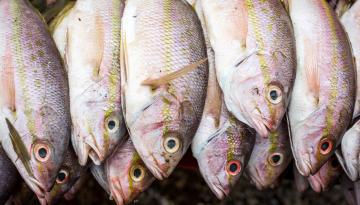Anglers across the country say a proposal to allow trout farming could threaten New Zealand's freshwater sports fishing industry.
Last month a select committee recommended the Government "give serious consideration to commercialising trout fishing" after considering a petition received in 2018.
The practice is currently banned in New Zealand, but proponents say legalising it would provide employment in rural areas, build sustainable economic activity and exports, relieve pressure on depleting fish stocks and provide a secure food source.
But the New Zealand Federation of Freshwater Anglers (NZFFA) fears the impact it could have on the local fly fishing industry, saying links have been shown overseas between trout farms and damage to wild trout populations.
"Most of the scientific literature worldwide has shown wherever trout farming has gotten established there's been considerable damage to the wild trout fisheries in those areas," NZFFA president Rex Gibson told Dominic George on Magic Talk's Rural Today on Wednesday.
"If we're talking about putting concentrated populations of trout together in a farming situation, the worldwide history has been for disease outbreaks. And if those get into the wild fisheries...those fisheries then become devastated."
Gibson said although there were no recent estimates of the value of the country's freshwater sports fishing industry he believed it was worth "over a billion dollars" a year.
"New Zealand is internationally known as [being] among the top two or three destinations in the world for tourist anglers," Gibson said.
"Tourist anglers are big spenders. They come here, they contribute a lot of money and the bulk of that money tends to go to regions where the trout are, regions like Central Otago, Taupo, Rotorua."
Gibson said in other countries where trout farming had been tried, such as Australia, it had been a "financial disaster".
"It's not economic to grow trout the same way we grow salmon," he said. "Salmon grow very quickly [but] trout will take at least a decade to reach the size of a two-year-old salmon. So all they're producing, particularly in temperature climates, is a trout that weighs about 500g and trying to put that onto the market and the public are not interested in that.
"So economically it's a bit of a disaster and worldwide they have not managed to get on top of the wide range of trout diseases that tend to get into those situations."
Another consequence of allowing commercial trout farming was the risk of poaching, Gibson said.
"We already have a mild problem with this in areas like Rotorua where people are frequently caught helping themselves to trout....so it's going to be very hard to tell, if somebody's in possession of a trout, whether it's one that they've bought from a shop or whether it's one that they've poached."
Commercial farming of trout and selling wild-caught trout are both currently prohibited under the Conservation Act and the Fisheries Act, meaning a law change would be required to give trout farming the go-ahead.
"What we're really doing is saying we don't need that law change because that law change would threaten an awful lot of livelihoods as well as a lot of people's recreational enjoyment," Gibson said.
A law change has also been opposed by the Fish and Game Council, which said it sees trout farming as a threat to the country's sports fishing industry and reputation.
However, according to the report by the Primary Production Committee, various iwi, Trout New Zealand and the Bay of Plenty Aquaculture Organisation all supported the proposal.
Although it noted the objections of those opposed to the proposal, the Ministry for Primary Industries (MPI) said it recognised legalising trout farming could bring potential economic benefits to the country, according to the select committee report.
If legalisation were to go ahead, MPI said it recommended reviewing the risks associated with the practice, including the risks around biosecurity and disease, poaching, and on the wild trout population. It also said a review of the economic potential should be undertaken.
The Primary Production Committee said it was "disappointed that the evidence provided by MPI put a strong emphasis on the oppositional reasons to commercial trout farming", but said after considering "the available evidence outlining the benefits and costs of legalising the commercial farming and sale of trout", it believed "it could be a viable option for New Zealand".


